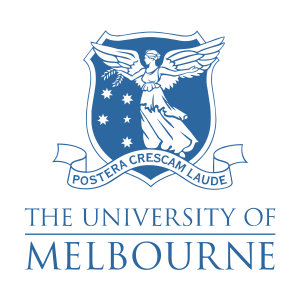
Posted: 10 December 2024
An Australian research team and their American collaborators have been awarded the 2024 Gordon Bell Prize, regarded as the ‘Nobel Prize’ of high-performance computing (HPC).
University of Melbourne Associate Professor Giuseppe Barca and his team were named the winners of the Association for Computing Machinery’s Gordon Bell Prize this morning (AEST) at the SC International Conference for High Performance Computing, Networking, Storage and Analysis in Atlanta, Georgia.
The Prize acknowledges the team’s breakthrough research: “Breaking the Million-Electron and 1 EFLOP/s Barriers: Biomolecular-Scale Ab Initio Molecular Dynamics Using MP2 Potentials.”
Established in 1987 and funded by American pioneer in high-performance and parallel computing Gordon Bell, the prize recognises the Australian team’s development of the first quantum-accurate simulation of biological systems at the scale needed to accurately model drug performance.
The software will enable new drugs to be developed faster and cheaper and for diseases that have — so far — been too difficult to treat.
The team’s breakthrough in HPC and quantum chemistry, announced in July 2024, will enable scientists to simulate drug behaviour with an accuracy that rivals physical experiments. This means they can now observe not just the movement of a drug, but also its quantum mechanical properties, such as bond breaking and formation, over time in a biological system. This is vital for assessing drug viability and designing new treatments.
Using the “exascale” power of the Frontier supercomputer at the Oak Ridge Leadership Computing Facility in Tennessee, USA, the team developed software capable of accurately predicting the chemical behaviour and physical properties of molecular systems, comprising up to hundreds of thousands of atoms. They have delivered highly precise predictions of molecular behaviour and set a new benchmark in computational chemistry.
Associate Professor Barca said the team is “absolutely thrilled” to receive the prize.
“My heartfelt thanks to the Association for Computing Machinery for this wonderful acknowledgement and to the University of Melbourne, my research team and our collaborators for helping to achieve the breakthrough,” Professor Barca said.
University of Melbourne Deputy Vice-Chancellor (Research) Professor Mark Cassidy congratulated Associate Professor Barca and his team on the achievement.
“We are thrilled to hear this news, which is a tremendous endorsement of Australian research and innovation,” Professor Cassidy said.
“Associate Professor Barca and his colleagues are an inspiration to all Australians, including the next generation of innovators. By drawing on our strengths in innovation, technology, big data, interdisciplinary collaboration and wider partnerships, their work promises to make an extraordinary contribution to society.”
Associate Professor Barca is based in the School of Computing and Information Systems in the Faculty of Engineering and Information Technology (FEIT). FEIT Dean Professor Thas Nirmalathas, also congratulated the team.
“We are so proud of Associate Professor Barca and his collaborators, whose work has enormous promise for improving health outcomes around the globe,” Professor Nirmalathas said.
In 2023, Associate Professor Barca co-founded the company QDX, which is already using high-performance quantum simulations to accelerate new therapeutics design. QDX has secured commercial deals with pharmaceutical companies and tech start-ups in Australia, Singapore and the US.
The winning team are: Giuseppe M. J. Barca, University of Melbourne and QDX Technologies; Jakub Kurzak Advanced Micro Devices Inc; Dmytro Bykov,Oak Ridge National Laboratory; and from the Australian National University: Jorge L Galvez Vallejo, Elise Palethorpe and PhD students Ryan Stocks, Fiona Yu and Calum Snowdon.



